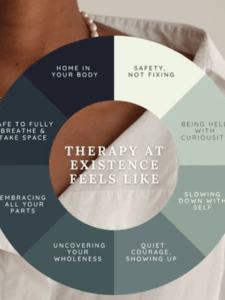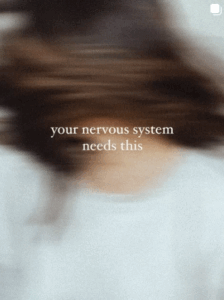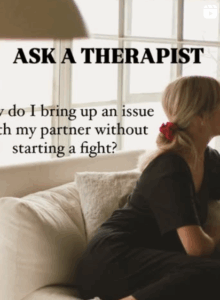When Emotions Feel Like Too Much—or Too Little
Have you ever found yourself overwhelmed by a flood of emotions one day, only to feel completely numb the next? You’re not alone. For many people, this rollercoaster of feeling too much or nothing at all is more than just mood swings—it’s the nervous system crying out for balance.
At Existence Therapy, our mission is to help individuals and couples reconnect with themselves through a blend of talk therapy and body-based mindfulness practices. By offering online therapy, we make healing more accessible, personal, and tailored to daily life stressors.
This blog will explore how nervous system overload happens, why it matters for emotional health, and how approaches like trauma therapy and couples therapy can create lasting regulation and resilience.
What is Nervous System Overload?
Your nervous system is the command center of your emotional and physical responses. When life feels stressful or threatening, it’s your nervous system that decides whether you go into fight, flight, or freeze mode.
The Fight, Flight, Freeze Response
-Fight: Anger, irritability, snapping at loved ones.
-Flight: Anxiety, racing thoughts, the urge to escape.
-Freeze: Emotional numbness, disconnection, or feeling “shut down.”
While these responses are natural, constant exposure to stress or trauma can cause the nervous system to get “stuck” in these modes. Over time, you may find yourself unable to regulate emotions effectively—leading to feelings of burnout, disconnection, or overwhelm.
Signs of Nervous System Overload
-Feeling everything too intensely, from stress to sadness.
-Feeling nothing, as if you’re emotionally detached.
-Difficulty concentrating or remembering things.
-Heightened sensitivity to noise, light, or conflict.
-Trouble sleeping or relaxing.
This state of imbalance is often linked to unresolved trauma, chronic stress, or relational conflict—making trauma therapy and couples therapy vital tools for restoring regulation.
Why Online Therapy is Uniquely Effective
When you’re already overwhelmed, making it to an in-person office can feel like an impossible hurdle. That’s where online therapy steps in.
Accessibility Without Barriers
With online sessions, you can meet your therapist from the comfort of your home. This reduces stress around commuting, parking, or rearranging your schedule—allowing therapy to fit seamlessly into your life.
Privacy and Comfort
For many clients, online therapy feels safer and more private. Being in your own environment can make it easier to open up, especially when working through vulnerable topics like trauma or relationship struggles.
Consistency and Flexibility
Healing requires consistency. With online therapy, you’re less likely to cancel or miss sessions, which strengthens progress. Flexible scheduling also makes it easier for couples to attend sessions together, even when juggling busy lives.
At Existence Therapy, online therapy isn’t just about convenience—it’s about creating a healing environment where clients can regulate, reflect, and rebuild emotional balance.
The Existence Therapy Approach: Body + Mind Connection
Unlike traditional therapy that focuses solely on conversation, Existence Therapy combines talk therapy with body-based mindfulness practices. This integrative approach helps regulate the nervous system by addressing both the mental and physical aspects of stress and trauma.
Yoga Therapy + Talk Therapy = Success
Gentle yoga postures release stored tension and reconnect you with your body. When paired with talk therapy, yoga therapy provides a physical outlet for emotions that words alone may not capture.
Breathwork Therapy + Talk Therapy = Success
Breathing deeply and intentionally signals to the nervous system that you are safe. In trauma therapy, breathwork can help clients gradually re-enter difficult memories without feeling overwhelmed. For couples, shared breathwork practices foster connection and calm during conflict.
Grounding Exercises + Talk Therapy = Success
Grounding techniques—such as focusing on the five senses or planting your feet firmly on the floor—help bring you back to the present. For clients in couples therapy, grounding can diffuse escalating arguments by slowing the nervous system down.
By blending these practices, Existence Therapy creates a safe, supportive space where healing isn’t just about talking—it’s about experiencing calm in the body and mind.
Trauma Therapy: Healing Daily and Deep-Rooted Wounds
Many clients come to therapy carrying unresolved trauma, whether from childhood, relationships, or ongoing stress. Left untreated, trauma can keep the nervous system on high alert, leading to anxiety, depression, or emotional shutdown.
At Existence Therapy, trauma therapy is approached with compassion and care. Through a combination of talk therapy and body-based techniques, clients learn to:
-Identify trauma triggers.
-Regulate their emotional responses.
-Rebuild a sense of safety within themselves.
-Process difficult experiences without overwhelm.
By offering this process online, trauma therapy becomes more accessible for those who might otherwise avoid seeking help due to stigma or logistical barriers.
Couples Therapy: Regulating Together
When one partner’s nervous system is overloaded, it inevitably impacts the relationship. Couples may find themselves stuck in cycles of conflict, miscommunication, or disconnection.
Couples therapy at Existence Therapy emphasizes co-regulation—the idea that partners can help each other regulate their emotions and nervous systems. Through guided sessions, couples learn to:
-Recognize stress responses in themselves and each other.
-Use body-based mindfulness practices together.
-Communicate more calmly and effectively.
-Rebuild intimacy and trust.
By integrating grounding, breathwork, and talk therapy, couples therapy creates opportunities for partners to move from survival mode to genuine connection.
Meet Laura: The Therapist Behind the Method
Laura, the founder of Existence Therapy, believes that healing requires more than just talking about problems—it requires reconnecting the mind and body. With years of experience, she has developed an integrative approach that blends traditional talk therapy with mindfulness, yoga, and nervous system regulation techniques.
Her clients—both individuals and couples—often describe her sessions as empowering and practical, giving them tools they can use immediately in daily life. Whether working through trauma therapy or navigating the challenges of couples therapy, Laura’s online sessions offer compassionate guidance toward resilience.
Practical Takeaways You Can Try at Home
While therapy provides structured support, there are small practices you can start today to begin regulating your nervous system:
Grounding Exercise: 5-4-3-2-1
-Notice 5 things you can see.
-4 things you can touch.
-3 things you can hear.
-2 things you can smell.
-1 thing you can taste.
This simple practice pulls your mind back to the present, calming racing thoughts.
Mini Breathwork Reset
Try “box breathing”: inhale for 4 counts, hold for 4 counts, exhale for 4 counts, hold for 4 counts. Repeat 3–4 times.
This technique is particularly helpful for calming anxiety or reconnecting during couples therapy.
Gentle Movement Break
Take five minutes to stretch, walk, or roll your shoulders. Movement signals to your body that it’s safe to relax and reset.
These tools are powerful, but they work best when guided by a therapist who understands your unique history.
Call to Action: You Don’t Have to Do This Alone
Nervous system overload can make everyday life feel like a battle. But healing is possible—with the right tools, guidance, and support.
At Existence Therapy, we specialize in:
-Online therapy that’s accessible and flexible.
-Trauma therapy that helps you process and regulate safely.
-Couples therapy that builds connection and resilience.
Whether you’re navigating personal struggles or relationship challenges, our integrative approach can help you find balance again.
👉 Ready to begin? Book an online session today and take your first step toward emotional awareness and nervous system regulation.

You don’t have to hold it all together here.
Hi, I’m Laura—a trauma-informed psychotherapist supporting individuals and couples across Ontario. I help those who grew up without emotional safety reconnect with themselves, their bodies, and their relationships.
Many of my clients are the people-pleasers and overthinkers who seem capable on the outside but feel exhausted and “not enough” inside. If that sounds familiar, you don’t have to carry it alone.
Let’s Begin.
If you’re ready to explore what healing could look like – not through fixing, but through feeling, remembering, and reconnecting – I’d be grateful to be part of that process.
Still unsure? We're here to help.
Totally fair to have questions. That’s why we created a full FAQ Centre with real, straightforward answers to things you’re probably already searching—like how online therapy actually works, what your first session might look like, how we match you with a therapist, and how to get started if you’re new to all of this.
Here are a few quick answers to get you going:
A meaningful and supportive therapy journey is ready when you are.
Meet Laura, the founder and therapist at Existence and connect in for free 15-minute intro session. Simple, supportive, and no pressure to commit.
- Professional
- Inclusive
- Curated





Join us @existencetherapy


